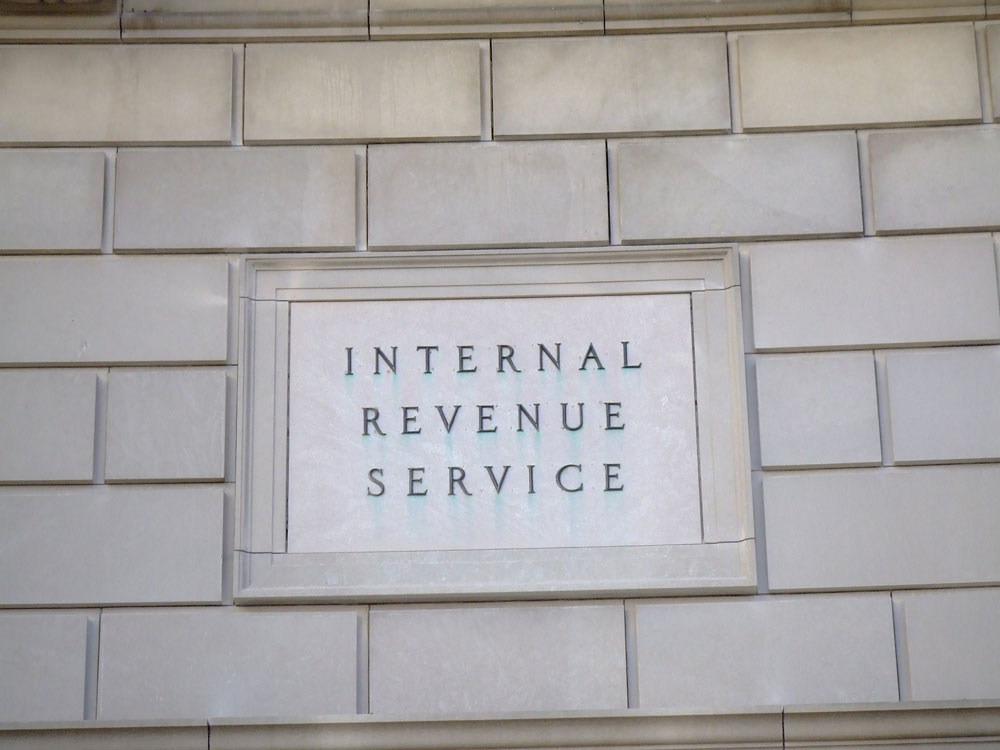
May 27, 2020; CNN
Later this week, the Trump administration is expected to finalize a new Internal Revenue Service (IRS) rule that will make it easier for political organizations to shield their donors.
Lisa Gilbert, executive vice president with Public Citizen, describes the change for CNN as “another nail in the coffin of disclosure.” But a statement from the National Rifle Association (NRA) describes the change as one that “helps safeguard the legitimacy of the political process and helps ensure donors on both sides of the aisle will not be attacked for their beliefs?” Which is it?
The new IRS regulations, innocuously titled “Guidance Under Section 6033 Regarding the Reporting Requirements of Exempt Organizations,” will, as described by the New York Times, remove the mandate that nonprofits like unions and 501c4 organizations report to the government the names of donors who contributed more than $5,000 in the span of a year.
Advocacy is not new to the nonprofit sector. Some longstanding organizations, like the NRA and Planned Parenthood, were formed with agendas and with broad sets programmatic activity; they must influence public policy if they are to be true to their mission. Of late new, nonprofit organizations have sprung to life solely to shape policy and to elect preferred candidates.
NPQ has seen the dilemma as real. Money is flowing in all political directions, and so donor anonymity may be important. As Nikhil Pillai observed last year, “We should never lose sight of the fact that many of the very organizations that advocate for policies that benefit the most underserved communities and protect the rights we have already fought for are 501c4 organizations themselves.” The ongoing question is whether we can ignore the pernicious effects of mega-wealthy donors on democracy because some for the risk to specific causes and organizations we may like.
The courts fueled the ability of 501c4s to raise funds by removing limits on campaign spending by individuals and corporations once the money was funneled through organizations that don’t officially coordinate their work with a specific candidate’s campaign. The Federal Election Commission also began to take steps to limit transparency, so the sources of funds have increasingly become secret, leading to growing worries over the influence of “dark money.” These soon-to-be-enacted new regulations will make it even harder to see into the sources of funding.
Sign up for our free newsletters
Subscribe to NPQ's newsletters to have our top stories delivered directly to your inbox.
By signing up, you agree to our privacy policy and terms of use, and to receive messages from NPQ and our partners.
Those cheering the Trump administration’s actions view political donor anonymity as vital to a strong democracy. Brent Gardner, a top official with Americans for Prosperity, a nonprofit organization started by the Koch Brothers, told CNN the new rule will make it “easier for Americans to support causes and join groups without being monitored and intimidated by those in power.”
“When people are free to stand alongside others who share their deeply held beliefs,” Gardner says, “they’re able to amplify their individual voices—contributing to a diverse public square and continued social progress.”
This position has been long held by its advocates. Back in 2016, former US Representative Peter Roskam (R-IL) gave a speech on the House floor in which he said, “The IRS can’t be trusted to protect contributors’ identities.” Philip Ellender, head lobbyist for Koch Industries, made it clear that from a donors’ perspective, “Transparency is meant for the government, not for private individuals.”
On the other hand, in an era where a class of mega-wealthy women and men (mostly men) have taken an interest in shaping government to their own ends, the power of secret groups to campaign without fully identifying for whom they speak comes at a great price. Fred Wertheimer, current president of the watchdog group Democracy 21 and former president of Common Cause, sees growing donor secrecy as benefiting “groups and wealthy individuals who want to spend unlimited amounts in elections and conceal their giving.”
Stripping the IRS’ ability to scrutinize donors’ identities “creates a clear, new opportunity for foreign governments and corporations to launder illegal contributions into our elections.”
Steven M. Rosenthal of the nonpartisan Tax Policy Center told the New York Times in 2018 that “the change effectively ends the agency’s oversight. The IRS audits tax-exempt organizations once in a blue moon and only after many years…the agency has been starved for resources and has had to cut back enforcement.” At that point, Rosenthal said, “following the money trail is an impossible challenge.”
NPQ has observed the difficulty of getting political leadership to act on this issue because the amounts of money now available to them has grown so large. Just before COVID-19 struck, we were following New York’s Governor Cuomo’s efforts to see legislation passed that would require nonprofits in his state to make public identifying information about donors over $10,000. NPQ cited his representative, Jason Conwall, who underscored the larger importance of protecting democratic values: “The public has a right to know who is backing these organizations so voters can better understand the sources for their positions and make decisions with full knowledge of the facts. Everyone supports transparency until it shows up at their own front door.”—Martin Levine












